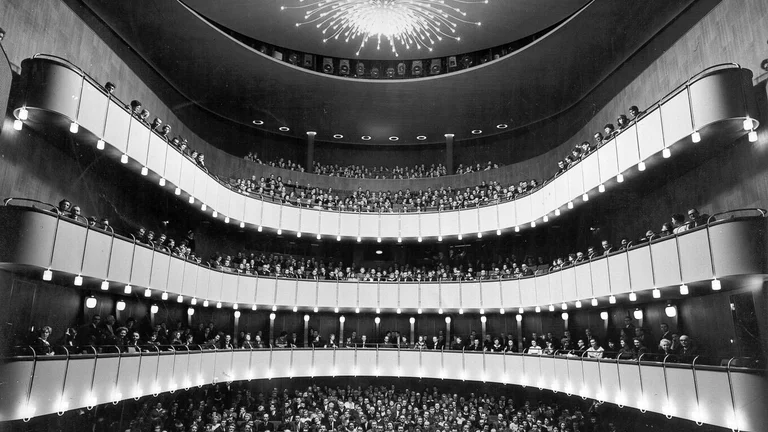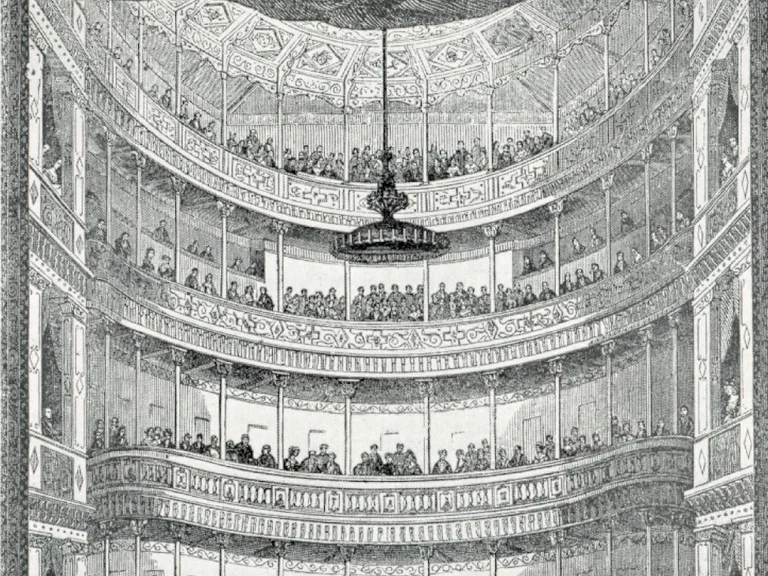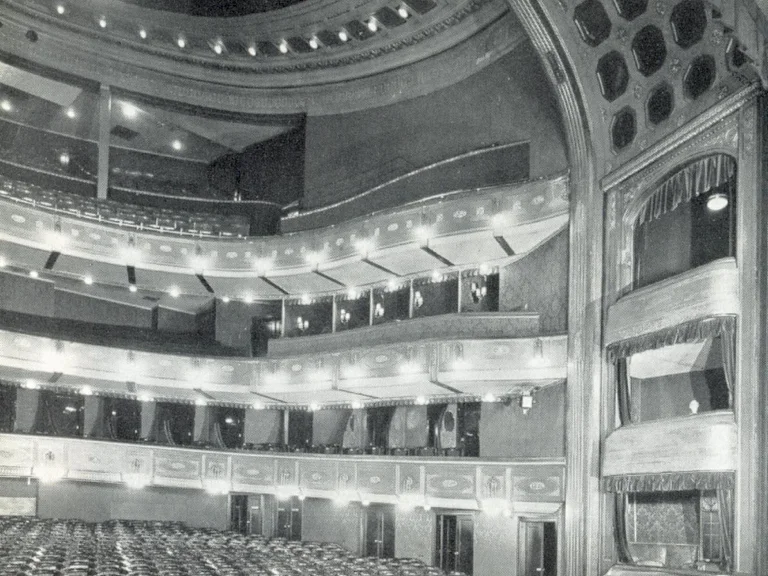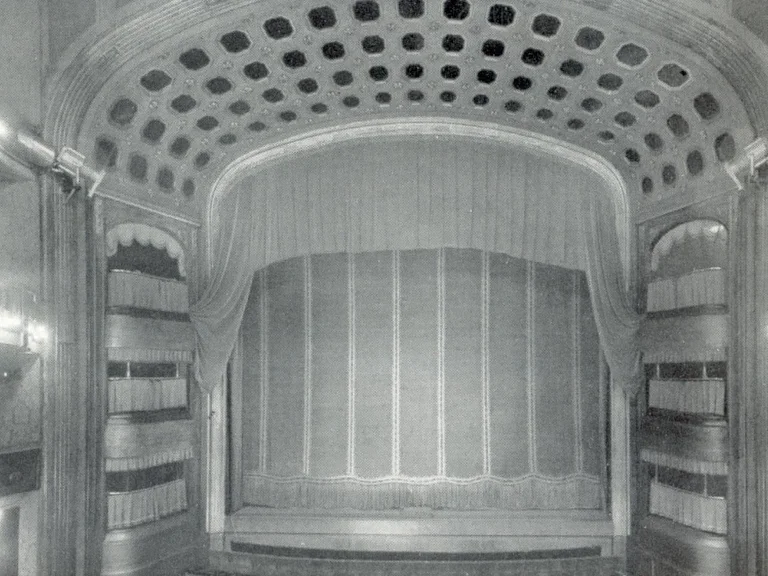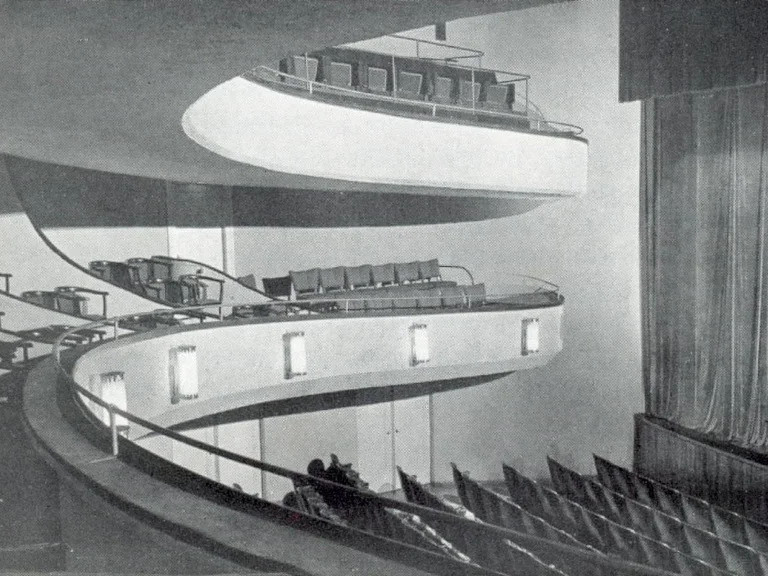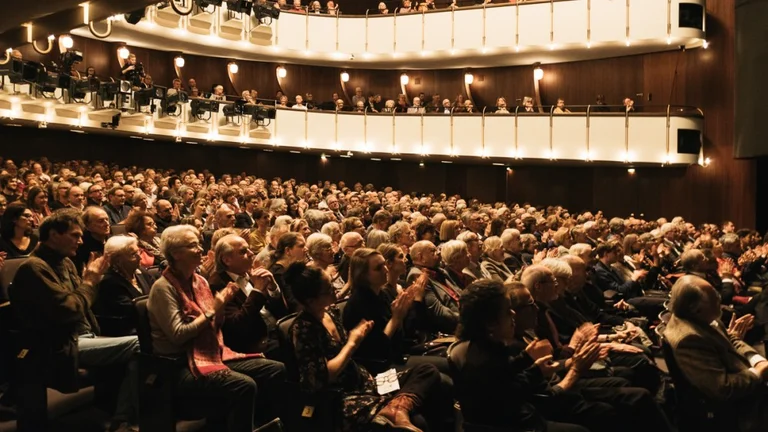Our story
Thalia Theater is one of Hamburg's four national theatres, a dramatic theatre with a permanent and highly acclaimed ensemble. The main stage seats around 1,000 people, and the repertoire includes some 20 productions, which are performed daily in rotation or in blocks. Each season, approximately nine new productions are premiered in the main building at Alstertor.
The old Thalia Theater building was designed by architects Franz Georg Stammann and Auguste de Meuron and built in 1843 opposite the present-day building. The larger new building was opened in 1912 under the direction of the director Leopold Jessner at Pferdemarkt, today's Gerhart-Hauptmann-Platz, with 1300 seats (architects Werner Lundt and Georg Kallmorgen). During the Second World War, the building was largely destroyed, then restored in the late 1950s and reopened in December 1960.
History
When Chéri Maurice applied for a theatre concession from the Free and Hanseatic City of Hamburg in 1843, he was not allowed to stage serious plays in order to protect the existing theatre on Dammtorstraße. He then named his establishment after Thalia, the Greek muse of comedy, and opened it on 9 November 1843 at a location opposite the present-day site.
Due to the success of Maurice and those who came after him, a larger theatre was built in 1912 at the present-day Gerhart-Hauptmann-Platz and opened by Leopold Jessner. However, the building was largely destroyed during the Second World War, restored at the end of the 1950s and reopened in December 1960.
In 1946 Willy Maertens became artistic director, followed by Kurt Raeck from 1964 to 1969, and then Boy Gobert. Gobert opened the theatre to contemporary experimental theatre with directors such as Peter Zadek, Hans Neuenfels and Jürgen Flimm. In 1972, the theatre opened its own studio stage, the TiK – Thalia in der Kunsthalle, as a second venue. From 1980 to 1985, Peter Striebeck, who was elected by the ensemble, ran the theatre, before handing over the artistic directorship to Jürgen Flimm.
While Thalia had previously been seen as a rather bourgeois theatre, Flimm took a more modern direction with directors such as Jürgen Gosch, Alexander Lang, Ruth Berghaus, Thomas Langhoff and George Tabori. Robert Wilson's musicals (in collaboration with Tom Waits and Lou Reed) have become legendary and went on tour worldwide. The theatre was invited to the Berliner Theatertreffen and voted Theatre of the Year numerous times. Along the way, Thalia Theater has become the most commercially successful theatre in Germany.
After Jürgen Flimm, Ulrich Khuon became artistic director and opened the Thalia in der Gaussstraße in his first season. He also focused on bold directorial styles (Andreas Kriegenburg, Stephan Kimmig, Michael Thalheimer, Armin Petras) and placed a greater emphasis on world premieres. The Autorentheatertage festival promoted young writers, and the Körber Studio Junge Regie, a platform for young directors, was created in collaboration with the Körber Foundation. Once again, Thalia Theater was invited to the Theatertreffen and named Theatre of the Year several times. Financial success continued.
Joachim Lux has been Thalia Theater's artistic director since 2009. Lux is committed to intercultural, interclass and interreligious dialogue. The international festival Um alles in der Welt – Lessingtage, launched in 2010, is testament to this commitment. Taking place at Thalia Theater between the end of January and the beginning of February, the festival showcases renowned international guest performances inspired by Lessing's ideas of enlightenment. Frequent invitations to perform internationally – including in Russia, China, Bogotá and other European countries – as well as numerous awards honour the ongoing efforts of Thalia Theater and its staff.
In summer 2025, Sonja Anders is the first woman in the history of the renowned Thalia Theatre to assume the role of artistic director. She has succeeded in making the ensemble significantly younger, more female and more diverse. Sonja Anders's main focus is on cooperation and close networking with the urban community. A new venue, BOX, has been created at Thalia Gaußstraße.
Chronology
1843
The Thalia Theatre is founded on 9 November 1843 by Chéri Maurice.
1894 - 1907
In 1894 Bernhard Pollini purchases the theatre, and in 1907 his heirs convert it into a limited liability company.
1912
In 1912, under the direction of Leopold Jeßner, the new building on Pferdemarkt (architects Lundt and Kallmorgen) with 1300 seats is opened.
1932
Erich Ziegel takes over from Hermann Röbbeling as director in 1932.
1937
Thalia Theater is nationalised in 1937.
1945
In 1945 the building is destroyed by bombing.
1946
A provisional reopening takes place in 1946 (under the artistic direction of Willy Maertens) with Shakespeare's Twelfth Night.
1960
On 3 December 1960, the restored building is reopened with Shaw's Saint Joan.
1964
Kurt Raeck is appointed artistic director of the Thalia Theatre for the next five years.
1969 - 1980
Boy Gobert takes over from him in 1969. Under his management (until 1980), the Thalia opens up to contemporary theatre. Gobert introduces directors such as Peter Zadek, Hans Neuenfels and Jürgen Flimm. The ensemble includes, among others, Paula Wessely, Ingrid Andree, Nicole Heesters, Johanna von Koczian, Agnes Fink, Martin Benrath, Helmut Lohner, Kurt Meisel and Uwe Friedrichsen.
1972
In 1972, a second venue (260 seats) is opened with the TiK - Thalia in the Kunsthalle, which is primarily used for premieres by young authors and experimental theatre.
1980 - 1985
From 1980 to 1985, Peter Striebeck is the theatre's artistic director.
1985
In 1985, Jürgen Flimm, who was already a leading director under Gobert, becomes the theatre's artistic director.
2000
In 2000, Ulrich Khuon takes over as artistic director. In November, a new second venue is opened in Hamburg-Altona to replace the TiK, which closed in June: the Thalia Theater on Gaußstraße, a multipurpose stage with 150 seats.
2009
Joachim Lux takes over as the new artistic director of Thalia Theater.
2025
Sonja Anders is the first woman to become artistic director of Thalia Theater.
